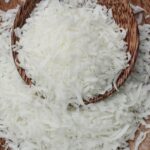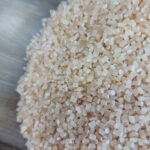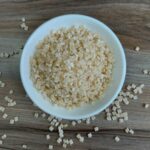CASHEW NUT SHELL OIL
In the dynamic world of meat product manufacturing, ensuring product quality and consistency while optimizing production costs can be challenging. Modified tapioca starch has emerged as a versatile solution, addressing various production issues and improving the overall quality of meat products. Here are three common challenges in meat products production that modified tapioca starch can effectively solve:
Table of Contents
Toggle1. Moisture Retention and Juiciness
One of the key challenges in meat products, especially in sausages and processed meats, is maintaining moisture to ensure juiciness and succulence. During cooking, a significant amount of moisture can be lost, leading to dry and less appealing products. Modified tapioca starch helps solve this issue by acting as a superior moisture binder. Its unique properties enable it to retain water effectively, even during high-temperature processing. This results in meat products that are not only juicier but also have an improved mouthfeel, enhancing the overall eating experience for consumers.
2. Texture and Mouthfeel Improvement
Consistency in texture is crucial for meat products, especially those like sausages, meatballs, and deli meats. Achieving the right firmness and bite without compromising on tenderness can be difficult. Modified tapioca starch provides a solution by acting as a gelling and thickening agent. When used in meat formulations, it creates a smooth, cohesive texture that enhances the mouthfeel of the final product. This starch adapts well to different formulations, helping to stabilize the texture throughout the shelf life of the product, ensuring that each bite delivers the desired quality.
3. Cost-Effectiveness and Yield Enhancement
The rising cost of raw meat materials can put pressure on manufacturers to optimize their production processes and manage costs effectively. Modified tapioca starch offers a way to increase yield without compromising the quality of the product. It acts as a filler and binder, allowing manufacturers to reduce the meat content slightly while maintaining the desired volume and weight. This is especially useful in products like sausages and patties, where maintaining product size and shape is important. By incorporating modified tapioca starch, manufacturers can achieve a higher yield, better consistency in product weight, and ultimately, a more cost-effective production process.


Conclusion
Modified tapioca starch has become an essential ingredient in overcoming common production challenges in the meat industry. Its ability to retain moisture, improve texture, and enhance yield makes it a valuable addition to the formulation of meat products. As consumer demand for quality and affordability grows, utilizing modified tapioca starch provides manufacturers with a competitive edge in delivering superior products that meet market expectations.












